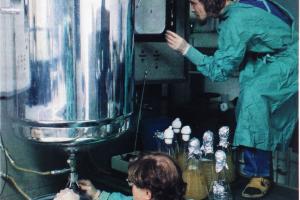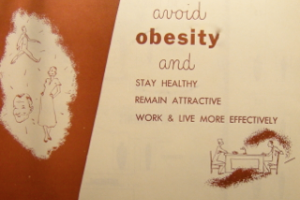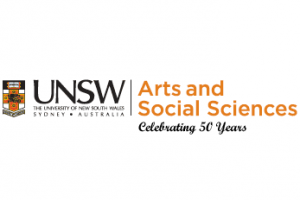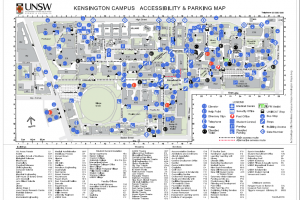
My Expertise
History of amphetamines, drug abuse, ADHD.
Biotechnology - social implications and history/pharmaceuticals - history/history of biology; DNA
History of obesity, public health, epimediology
Fields of Research (FoR)
Historical Studies, History and Philosophy of MedicineSEO tags
Biography
Nicolas Rasmussen is a Professor in the School of Humanities. He has higher degrees in history and philosophy of science, developmental biology, and public health. With Betty Smocovitis, he serves as Chief Editor of the Journal of the History of Biology.
His research has dealt with the role of technique and instrumentation in shaping scientific knowledge, the history of biotechnology, molecular biology and its cultural and intellectual...view more
Nicolas Rasmussen is a Professor in the School of Humanities. He has higher degrees in history and philosophy of science, developmental biology, and public health. With Betty Smocovitis, he serves as Chief Editor of the Journal of the History of Biology.
His research has dealt with the role of technique and instrumentation in shaping scientific knowledge, the history of biotechnology, molecular biology and its cultural and intellectual history, the history of amphetamines as medicines, the history of drug abuse and pharmaceuticals in the United States since 1900, and the influence of industry sponsorship on biomedical research. He has been principle investigator on several NSF (USA) and ARC grants.
His current major project concerns the history of symbiosis in medical microbiology, and is funded by a major ARC Discovery Project grant (DP260101743; with co-CI Maureen O/Mallet at Sydney University). His monograph on the history of genetic engineering with Johns Hopkins, entitled _Gene Jockeys: Life Science and the Rise of Biotech Enterprise__, was published in 2014, and another monograph entitled _Fat in the Fifties: America's First Obesity Crisis_ was published in 2019 from the same press.
My Qualifications
MA Chicago, MPhil Cambridge, PhD Stanford, MPH Sydney
My Awards
Residential Fellowship, Center for Advanced Studies in Social and Behavioral Sciences, Stanford University, autumn 2015
“Highly Commended”, British Medical Association Book Awards, for Gene Jockeys, 2015
Australian Research Council “Discovery Project” Large (sole PI) Grant for research on history of obesity, heart disease research, and public health policy in early Cold War USA (A$180,000), 2014-16
Countway Library Fellowship in History of Medicine, Harvard and Boston Medical Library, 2013-14
Australian Research Council “Discovery Project” Large (sole PI) Grant for research on history of biotechnology policy and rDNA drug development in 1970s-80s USA (A$165,000), 2009–12
2008 Stanley Jackson Prize for best article published in the Journal of the History of Medicine in a three year interval, for “Making the First Antidepressant"
2007 J. Worth Estes Prize for best scholarly article on history of drugs or pharmacology, American Association for the History of Medicine, for “Making the First Antidepressant”
Australian Research Council “Discovery Project” Large Grant (as sole PI) for research on history of pharmaceutical development in early and mid-20th C USA (A$132,000), 2004–06
Senior Visiting Fellowship, MIT-Dibner Institute for History of Science and Technology, winter 2004
2000 Book Prize, History of Science Society, Forum for the History of Science in America, for best book on the history of American science by a junior author, for Picture Control.
1999 Paul Bunge Prize for best work on history of scientific instruments (awarded by the German Chemical Society on behalf of the Hans Jenemann Foundation), for Picture Control.
National Science Foundation (USA) senior research grant (as independent scholar, and sole PI) for research on history of plant physiology in early and mid-20th C USA (US$56,000), 1998
Senior Visiting Fellowship, MIT-Dibner Institute for History of Science and Technology, autumn 1998
My Teaching
Current and recent courses taught:
ARTS2303: On Drugs: Medicine, Science and Industry since 1900
ARTS3270: History Capstone
ARTS3242: Environmental History
Life Science in the 20th Century: The Molecular Revolution (not currently taught)
Agriculture and Civilisation in Environmental Perspective (not currently taught)
Contact
Publications
ORCID as entered in ROS
Research Activities
In the 1980s many scientists joined commercial genetic engineering ventures. This biotechnology 'gold rush' brought major change to university science, first in the US but soon globally. Controversy continues about whether society has gained from new products, or lost from reduced basic research, but such discussions of the 'privatisation' of life science rest largely on journalistic or anecdotal evidence. The proposed study will be the first systematic history of the linkages forged between academic biologists, universities, and corporations in the development of early recombinant…
In 1951 the US Public Health Service declared obesity, newly reinterpreted as an addictive disorder, to be the nation’s leading health problem. This project will be the first to study the course of this early obesity crisis, analysing the interaction between popular perception, biomedical science and health policy, all in the political and cultural context of postwar America. Research will especially focus on the competing efforts of several biomedical disciplines and their scientific leaders to define the problem and shape responses to it. The goal is to understand the ways science and…



